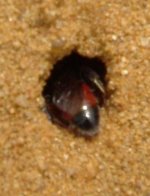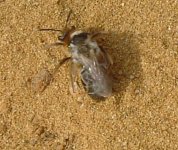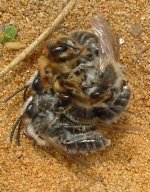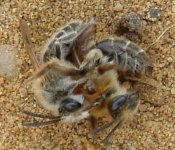Karl J
Well-known member
Fellow BF'er Mike D put me on to these this morning at Strumpshaw RSPB, Norfolk, buzzing about just a few inches above the sandy path, occasionally one would crawl down into a burrow dug in the path.
What i assume was mating, was a bit of a contest at times with up to 4 males competing for a female.
Took these pictures
What i assume was mating, was a bit of a contest at times with up to 4 males competing for a female.
Took these pictures







